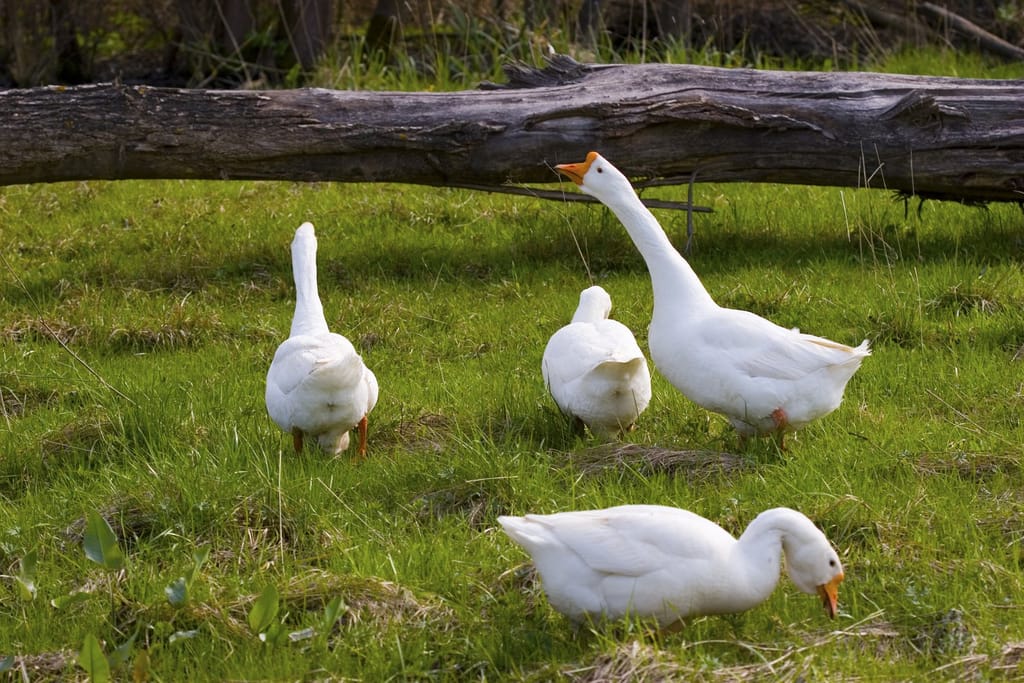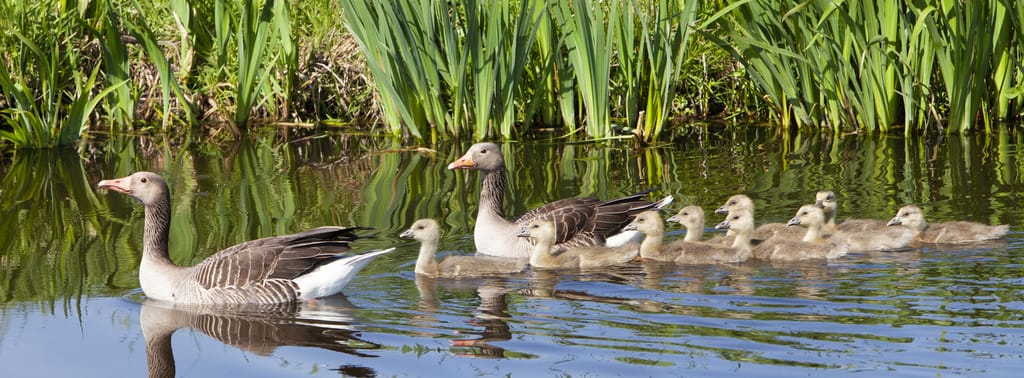What is Responsible Down Standard (RDS)?
The Responsible Down Standard (RDS) is an international certification and labeling program created to ensure that all down and feathers used in products come from animals that have been treated humanely and are not subjected to any unnecessary harm or suffering. It protects the welfare of geese and ducks and ensure that their down and feathers are sourced responsibly. The goal of the program is to provide traceability and accountability for the down and feather supply chain, from farm to finished product. The standard outlines strict animal welfare requirements that must be met to be certified. It also includes guidelines for the humane treatment of animals throughout the production process.
RDS and Animals
Developed by the industry-leading Textile Exchange, the RDS is a voluntary, third-party-verified set of standards for the traceability, processing, and labeling of down and feathers used in products. The program provides the best assurance that birds used for down and feathers are not live-plucked or force-fed. It also ensures that birds are provided with proper housing, nutrition, and humane treatment throughout their life cycle.
In addition, the RDS encourages the use of recycled or traceable down and feathers and provides traceability from farm to finished product. The standard is beneficial to animals as it ensures that birds used for down and feathers are treated humanely and not subjected to cruel practices such as live-plucking and force-feeding.
By providing a third-party-verified certification program, the RDS helps to ensure that companies and consumers can make informed choices about the products they buy and the companies they support. The RDS also encourages companies to use recycled or traceable down and feathers, reducing the environmental impact of the down and feather industry.

Impact
The RDS was developed in 2014 by the Textile Exchange, a global nonprofit dedicated to sustainability in the textile industry. It is a game-changer for the down industry. It has provided much-needed transparency and accountability in the sourcing of down, giving both businesses and consumers more confidence in the products they are buying. This has had a positive effect on the industry, as companies that adhere to the RDS are better able to differentiate their products on the market.
Consumers are looking for companies that show a commitment to responsible sourcing, and the RDS provides a simple way for companies to show this commitment. Adopting the RDS has also had a beneficial effect on animal welfare. By providing a clear set of standards for the humane sourcing of down, the RDS has helped to ensure that birds are not subjected to cruel practices such as force-feeding or live-plucking. This has resulted in an overall reduction in the cruel and inhumane treatment of birds in the down industry.
Certified
To ensure that down products are certified as Responsible Down Standard, look for the RDS Certified label on the product or packaging. If a product is certified, they have sourced it from suppliers that adhere to strict animal welfare guidelines. These guidelines include the humane treatment of animals, traceability of the down supply chain, and the prohibition of live-plucking and force-feeding. They will label certified RDS products with a unique tracking number that can be traced to the source. If a product does not bear the RDS label or tracking number, it is not certified RDS and has not been held to these standards of animal welfare and traceability.

Benefits for farmers and producers
The RDS is a comprehensive traceability and monitoring system that requires the full supply chain (from farm to final product) to be certified. For farmers and producers, the RDS presents significant benefits, both environmental and economic. By utilizing the RDS, farmers and producers can demonstrate their commitment to animal welfare and sustainability, which can help to improve their reputation and marketability.
By meeting the RDS requirements, farmers and producers can ensure that their down and feather products meet the highest standards of quality, safety and sustainability. The RDS also provides farmers and producers with clear guidelines on how to adhere to best practices in animal welfare, from slaughter to storage of feathers. This includes standards for humane slaughter, animal handling, feed and water management, and housing conditions. Farmers and producers can also ensure their birds are treated in a humane and responsible manner. The RDS is an important tool for farmers and producers to manage their risk. By adhering to the RDS, farmers and producers can demonstrate their products are sourced and handled. This can help to protect them from criticism or legal action from consumers or animal welfare organizations.
Conclusion
The Responsible Down Standard (RDS) is a global standard that provides assurance that down and feathers in a product come from birds that were treated humanely. The standard is based on a framework of animal welfare best practices, which includes both animal welfare requirements and social responsibility criteria.
Reference
- PETA Reveals the ‘Fowl’ Truth Behind ‘Responsible’ Down. (2022, December 22). PETA. https://www.peta.org/features/responsible-down/
- Research, O. (2021, September 17). What Does "Responsible Down" Really Mean? https://www.outdoorresearch.com/blog/what-does-responsible-down-really-mean
- Responsible Down Standard (RDS). (2023, January 26). Textile Exchange. https://textileexchange.org/responsible-down-standard/